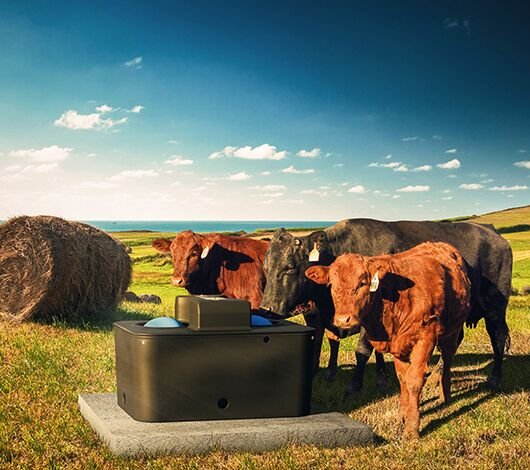Clean, reliable water access is one of the most vital — yet often overlooked — aspects of livestock care. Whether you’re raising cattle, horses, sheep, or goats, livestock waterers play a critical role in maintaining animal health, performance, and comfort. Without adequate hydration, even the best feed and care routines can fall short.
In this comprehensive guide, we’ll explore everything you need to know about livestock waterers — from the different types available to the benefits of energy efficient waterers, plus smart maintenance tips to keep your animals hydrated year-round.
Why Are Livestock Waterers So Important?
Hydration affects every aspect of an animal’s health — from digestion and reproduction to temperature regulation and milk production. On average, cattle can drink 10 to 20 gallons of water daily, while horses consume about 5 to 10 gallons.
Traditional watering methods, like troughs or buckets, require frequent refilling and cleaning. That’s where modern livestock waterers come in. They provide a constant supply of fresh water while reducing waste, saving time, and improving overall farm efficiency.
Types of Livestock Waterers: Which One Fits Your Farm Best?
Not all livestock waterers are created equal. The right choice depends on your animals, climate, and management style. Here’s a breakdown of the most common types and what makes each unique:
1. Automatic Livestock Waterers
Automatic models connect directly to your water source, maintaining a consistent water level. They’re ideal for cattle waterers and horse waterers alike, as they reduce the need for manual filling.
Pros:
• Continuous clean water supply
• Reduces labor and water waste
• Available with frost-free or heated options
Cons:
• Higher initial investment
• Requires plumbing setup
2. Heated Waterers
Perfect for cold climates, heated livestock waterers prevent freezing during winter months. These often come with thermostats or heating elements to keep water at optimal temperature.
Pros:
• Prevents ice formation
• Ensures hydration in winter
• Suitable for cattle waterers and horse waterers
Cons:
Slightly higher energy costs (unless you choose energy efficient waterers)
3. Energy Efficient Waterers
As sustainability becomes a priority, energy efficient waterers are gaining popularity among modern farmers. These systems use insulation, geothermal heat, or solar power to reduce energy consumption while maintaining a steady water temperature.
Pros:
• Low operational costs
• Environmentally friendly
• Reduces freezing risk without heavy power use
Cons:
May require specific installation or site setup
4. Pasture or Field Waterers
Designed for grazing areas, these livestock waterers are typically mobile, durable, and built to handle outdoor conditions. Some feature float valves or gravity-fed systems to provide consistent hydration.
Pros:
• Ideal for rotational grazing
• Easy to move and maintain
• Available for multiple livestock species
Benefits of Modern Livestock Waterers
Investing in high-quality livestock waterers, including cattle waterers and horse waterers, goes far beyond convenience. The right system can transform your animal care routine and improve herd health.
1. Healthier Animals
Clean, fresh water helps prevent dehydration, urinary issues, and digestive problems. Automatic or energy efficient waterers ensure animals always have access to uncontaminated water — unlike open troughs that collect algae, dirt, or pests.
2. Consistent Water Supply
Animals drink more when water is always available. Continuous access encourages better feed intake and nutrient absorption, especially important for lactating cattle and working horses.
3. Time and Labor Savings
Manual watering can be time-consuming, especially on large farms. Automatic livestock waterers reduce daily chores, giving you more time for herd management or pasture care.
4. Winter Protection
Frozen waterers are a common headache during winter. Heated or energy efficient waterers prevent ice buildup, ensuring uninterrupted water access even in sub-zero temperatures.
5. Cost Efficiency and Sustainability
While advanced livestock waterers require upfront investment, they pay off through lower maintenance costs, reduced waste, and improved productivity. Energy efficient waterers, in particular, can significantly cut utility expenses.
Maintenance Tips: How to Keep Your Livestock Waterers Running Smoothly
Even the best livestock waterers require proper care to ensure long-term performance. Neglecting maintenance can lead to contamination, leaks, or malfunctions. Follow these expert tips to keep your system efficient and safe:
1. Clean Regularly
• Scrub the inside of cattle waterers and horse waterers weekly to prevent algae buildup.
• Use mild detergents and rinse thoroughly to avoid chemical residue.
2. Check for Leaks
• Inspect valves, hoses, and float mechanisms regularly.
• Leaks not only waste water but can cause slippery or muddy areas that stress livestock.
3. Prepare for Winter
• For cold regions, use insulated or energy efficient waterers designed to resist freezing.
• Ensure electrical connections for heated models are properly grounded and weather-protected.
4. Monitor Flow Rate
• Make sure water pressure remains steady. A clogged valve or sediment buildup can slow refill times.
• Clean filters and float systems periodically.
5. Position Wisely
• Place livestock waterers in shaded areas during summer to keep water cool.
• Ensure the ground beneath is stable and well-drained to prevent mud and contamination.
Livestock Waterers for Different Animals
Different animals have different hydration needs — and selecting the right design ensures comfort and safety.
Horse Waterers
Horses are sensitive to both water temperature and cleanliness. Horse waterers should offer fresh, palatable water and prevent freezing in winter. Automatic or energy efficient waterers work well, reducing manual refills and maintaining steady hydration.
Cattle Waterers
Cattle require high-capacity systems due to their water intake volume. Cattle waterers with frost-free features or float valves ensure consistent water availability, even for large herds. Models made from heavy-duty materials withstand rough use and outdoor conditions.
Common Questions About Livestock Waterers
Q: How often should I clean livestock waterers?
A: Ideally once a week — more often during hot weather or if algae growth is visible.
Q: Are energy efficient waterers worth the investment?
A: Absolutely. They reduce electricity costs, prevent freezing naturally, and require less maintenance over time.
Q: Can I use one type of waterer for different animals?
A: In some cases, yes — but always ensure the height, flow rate, and capacity suit each species’ drinking habits.
Conclusion
A steady supply of clean, fresh water is the foundation of livestock health and productivity. Modern livestock waterers, whether automatic, heated, or energy efficient waterers, simplify daily chores while ensuring your animals stay hydrated year-round.
From durable horse waterers to high-capacity cattle waterers, the right system will save you time, improve animal welfare, and reduce long-term costs.
Investing in quality equipment isn’t just about convenience — it’s about supporting your herd’s well-being, improving farm efficiency, and promoting sustainability.
So, if you’re still using manual troughs or buckets, it might be time to upgrade. A smart, well-maintained livestock waterer isn’t just a tool — it’s an investment in the health, happiness, and productivity of your entire operation. sheep waterers


